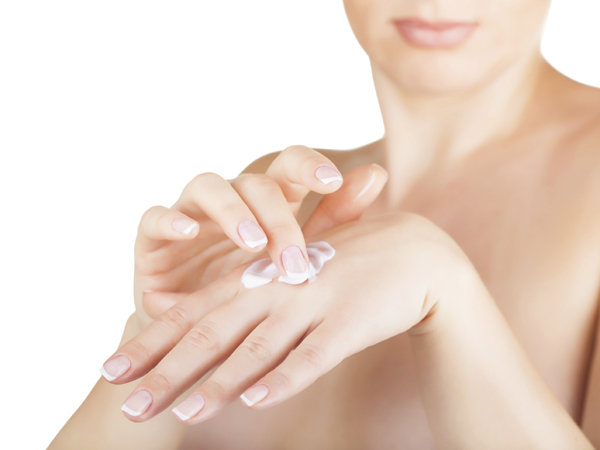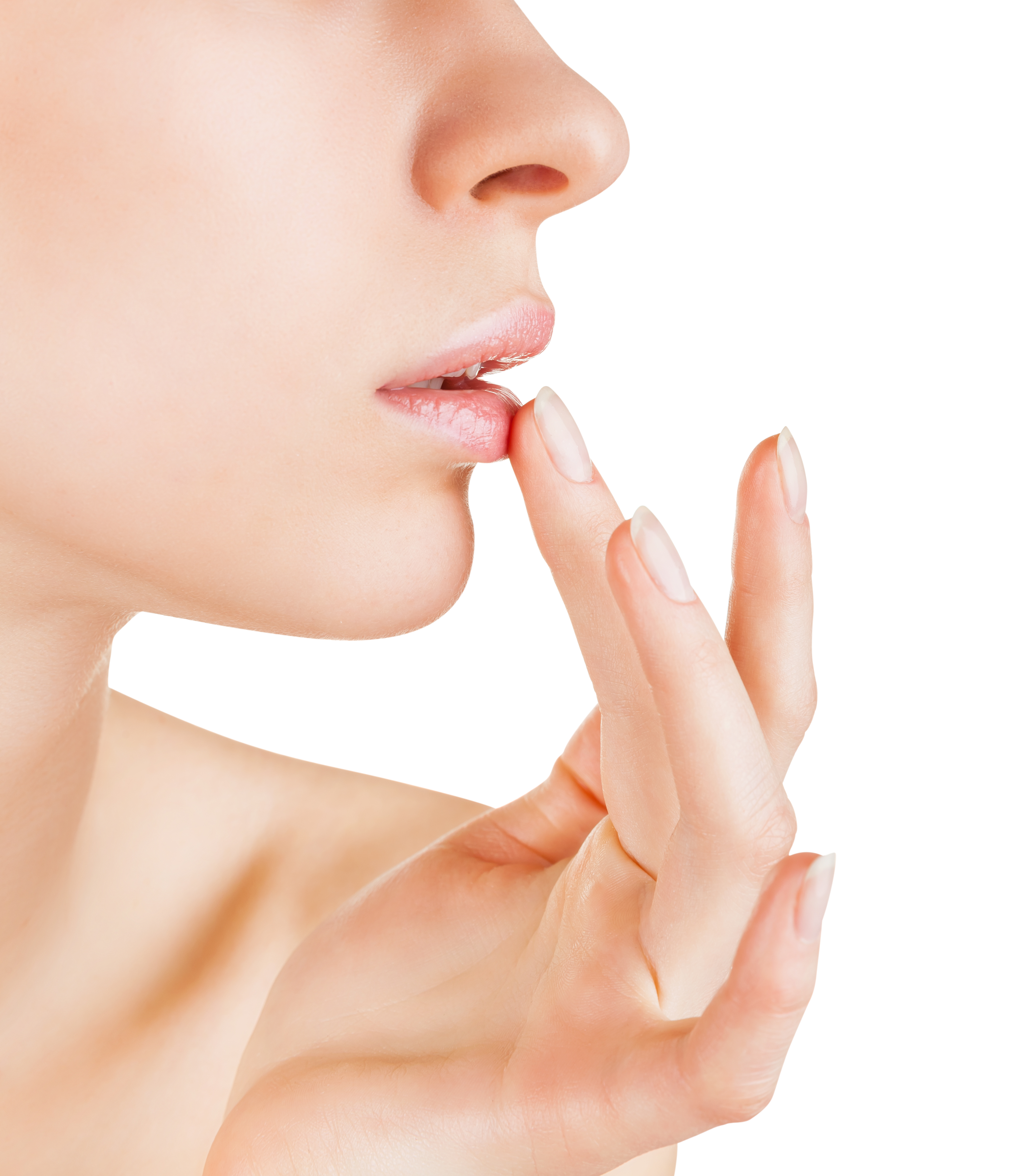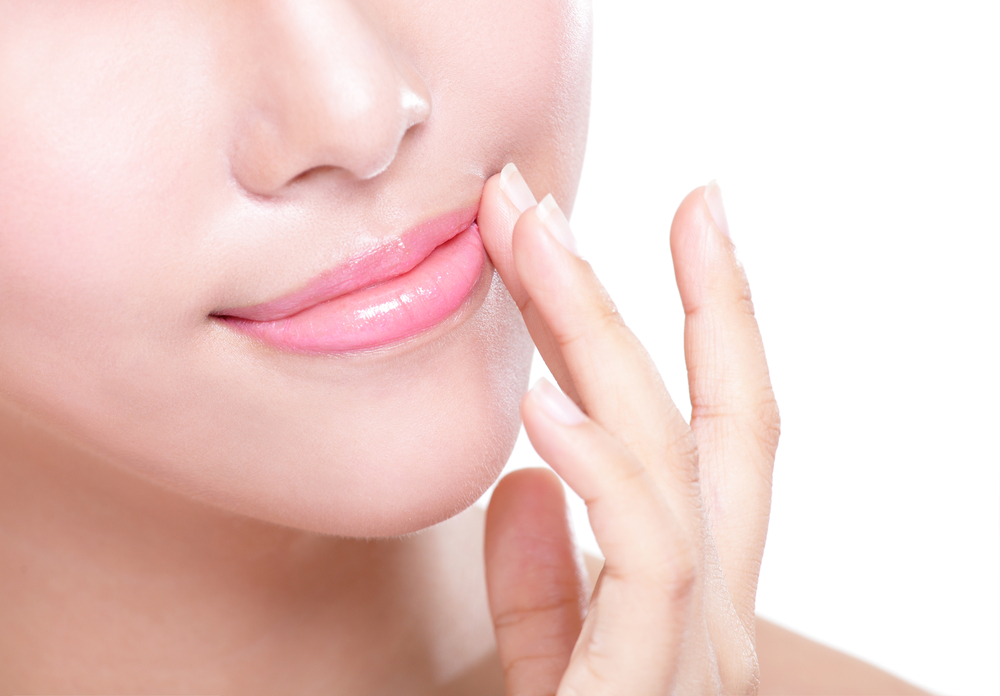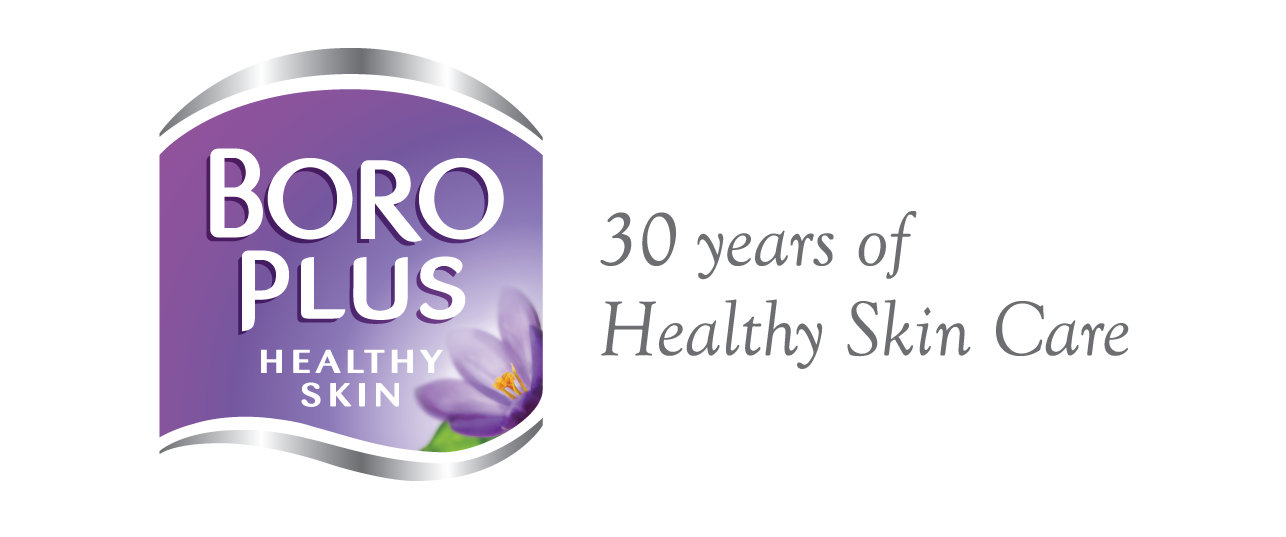-
Understanding your skin
Discover Healthy skin with Boroplus
When your skin looks and feels good you feel confident and on top of the world. A healthy diet, plenty of water, regular sleep, exercise and being sun smart are the starting points to maintaining and improving your skin’s health.
Your route to healthy looking skin:
Healthy daily lifestyle habits can be just as important as a good skin care routine:
- • Protect your skin from the sun by using a good broad-spectrum sunscreen daily, minimizing direct exposure to harmful UV rays.
- • Try to drink 6-8 glasses of fluid each day to keep the skin hydrated, flush out toxins and maintain a healthy complexion.
- • Avoid too much of processed food and eat a diet packed with nutritious food, particularly a host of fresh fruit and vegetables, as well as whole grains and lean proteins.
- • Build regular exercise like walking, running and yoga into your schedule. Exercise increases circulation and the absorption of nutrients into the skin. Exercise also helps to manage stress, which can trigger skin problems.
- • Sleep maximizes the natural secretion of human growth hormone, which promotes cell turnover and collagen production. Ensure you get restful sleep for 6-8 hours every night.
- • Maintain a daily skin care routine, including cleansing and moisturizing with quality products suited to your individual skin type, and remember to always remove your makeup thoroughly before going to bed.
- • Be gentle with your skin by limiting bathing time and avoiding high water temperatures, especially in winters.
- • Shave carefully and pat your skin dry after washing.
- • Remember to adjust your skin care routine for the changing seasons. The humidity in the air can drop significantly during the winter months, and radiators can have an adverse effect on your skin. Moisturizers that work fine in spring and summer may not be effective in winter when cold air from outdoors and heated air indoors dries the skin.
For many with dry, and very dry skin needs, Boroplus Skin care products is the answer to restore back to healthy skin.
Try the Boroplus Skin Care Fragrance Free Cream today.
-
Facts about skin: Understanding Skin structure
Our skin consists of three layers of tissues: the epidermis, the dermis and the subcutaneous layer. The epidermis is the paper-thin outer layer of the skin. The outer layer of the epidermis consists of dead cells that are always flaking or washing off. These are replaced by new cells manufactured in the lower portion of the epidermis, which move upward to the outside of the skin. As they do so, the cells harden and die. This cycle of cell production and replacement takes about 4-5 weeks.

The epidermis also contains melanocytes, the cells that contain melanin — the pigment that gives skin its color. Skin color is determined by the amount of melanin in these cells, not cell number. The more melanin, the darker the skin.
The dermis, the middle layer of the skin, contains blood vessels, nerves, hair follicles, sweat glands and oil glands. It makes up about 90 percent of the skin's thickness and is made up of collagen and elastic fibers that give the skin strength and elasticity.
The subcutaneous layer, the deepest layer of skin, is mostly composed of fatty tissue. It also contains blood vessels and nerves. The fat insulates the body from extreme heat and cold and provides a cushion to protect the body from injuries.
-
Skin Types
Skin Type
Every skin is different, and taking care of each skin type presents a unique set of challenges. Skin type does not change but you can only manage your skin type through proper care e.g. for oily skin, you can ensure that the skin remains clean, and pores are not clogged by following the correct skin care regimen and using the right products.
On the other hand, a skin condition can be treated as these are caused by combination of external factors and improper skin care, e.g. you can rehydrate dehydrated skin or you can treat an acneNormal Skin
A healthy glow, no open pores or fine lines (although these may develop with the natural ageing process), soft, smooth texture.
Normal skin is soft to the touch, uniform and without obvious imperfections. It can sometimes be greasy and shiny in the "T zone" formed by the forehead, the nose and the chin, it then is called combination skin. There is no excessive production of sebum. Micro-relief is characteristic of a well-moisturized skin and neither secretes too much sweat nor too much sebum
Dry Skin
Visible dryness, tightness, prone to wrinkling, tight pores.
A dry skin lacks either lipids or water or both. Other factors may also be important like ultraviolet irradiation, pollution or climatic conditions. When dryness is due to the lack of sebum, there are less protective lipids and skin is more reactive to aggressive factors. People with dry skin experience a feeling of tautness after washing.
When exposed to drying factors, skin can flake, crack, peel or become itchy, irritated or inflamed. If your skin is very dry, it can become rough and scaly, especially on the backs of your hands, arms, and legs.
Dry skin may be caused or worsened by Genetics, Ageing or changes in hormones, Extreme weather such as wind, sun, or cold, Indoor heating, Long hot baths and showers, Ingredients in soaps, cosmetics or cleaning agents and Medications.
Dehydrated dry skin is associated with a significant lack of moisture. The most obvious characteristic is certainly a coarse feel and roughness of the cutaneous surface. It may be a question of constitution, as is often the case with pale, thin, delicate skins, with a tendency to suffer from eczema or to be sensitive to the cold (tendency to chapping) or to dryness from the ambient air causing tautness and itching to various degrees.
Sensitive Skin
Thinner, more delicate skin texture, prone to reactivity, fairer complexion, redness (hot spots).
Having a sensitive skin type can mean different things to different people. It can be caused by skin conditions such as rosacea, eczema or allergies. Sensitive skin can become inflamed and irritated easily. It is important to choose the right skin care for sensitive skin because many cleansers and moisturisers contain ingredients that can cause an adverse reaction.
Oily skin
Shiny, open pores, coarser skin texture with oily residue.
Oily skin is characterised by the overproduction of the sebum at the skin surface by the sebaceous gland, target organ of androgens. It is most frequently encountered in adolescents and young adults. Excess of sebum gives the skin a shiny appearance, particularly on the forehead, the sides of the nose and the chin. In severe cases, various forms of acne can develop. A oily skin is thick, well moisturized and covered with a protective oily film. It is less sensitive to external factors, to drying out and stress and for this reason is less subject to wrinkles and signs of ageing.
-
The science behind healthy skin
The science behind healthy skin
Boroplus combines nature and scientific expertise to keep your skin healthy. Using the principles of Ayurveda, powerful herbs and natural oils are combined to effectively penetrate deep into the skin and protect the skin cells from damage, helping repair and regenerate the cells, giving your skin an improved and naturally healthy appearance from within.
Take a look now and find the best everyday skin care product for your skin type!The skin is approximately 15% of our body weight, covering 12 to 20 square feet. It is made up of 70% water, 25% protein and less than 5% fat. Its primary role is protection. And it holds your body together.
The skin is created in a way that it lubricates itself with oils the body produces to keep itself healthy and resilient. However, in extreme conditions, the skin requires little help to maintain optimum health.
Epidermis, the primary barrier against the outside is less than a millimeter thick. Only the right-sized molecules can get through. It also renews itself every six to eight weeks. Dead cells continually slough off, and new ones emerge from below. Our epidermis largely affects how fresh your skin looks, and how well it absorbs and retains moisture.
Herbally formulated Nature Shield Complex actively provides moisture to replace TEWL (Trans-Epidermal Water Loss due to external conditions) and nutrients to keep the skin collagens healthy and resilient, making the skin soft, supple and strong.
-
Skin care in Winters

Winter Skin
Prevent Winter Skin
Winter is upon us, which can mean dry, itchy, chapped skin. For some people winter can change everything about the look and feel of their skin while for others nothing might change. A little effort and care can be the difference that your skin needs to show you its better, healthier side.
As a result you might have to change your routine up to compensate for the lack of moisture in the cold air, and for the amount of time we spend inside with heaters on full blast.
What Causes Winter Skin?
Lack of moisture in cold air, exposure to heaters and thick irritable clothing are the major causes of itchy dry skin in winters. Itchy dry skin is a very common during the cold winter months when skin becomes dehydrated and irritated, it loses its flexibility and begins to crack and itch.
The winter can be brutal, especially for your skin. The dry heat from radiators zaps moisture and the cold strips away your skins natural oils. Chapped lips and dry skin don’t necessarily have to be a way of life during the colder months. There are some easy ways to rejuvenate your skin by adding to its softness and suppleness.
Stay Hydrated
Eat plenty of essential fatty acids (EFAs), particularly omega-3 (found in avocado and oily fish) and omega-6 (found in nuts, wholegrains and flaxseed oil), which keep skin hydrated and clarified.
Avoid dehydration by drinking eight to 10 glasses of water daily and minimising your intake of caffeinated drinks and alcohol."
Moisturise often
Use natural or herbal moisturisers. Avoid chemical based lotions. It should contain ingredients that help keep the water in the skin. Keep in mind that a lotion or a cream is best for dry skin, which is especially common in winter months. Apply a Boroplus after showering or bathing, since skin is more vulnerable after it is clean. The sooner you moisturise, the better.
Humidify
Use a humidifier to replace the moisture lost from the air by heaters. Place a bowl of water in the corner of each room to compensate for moisture loss.
-
Take care of your hands


Taking care of your hands to keep them soft, smooth, and youthful.
Whether gripping a steering wheel or scrubbing dishes, hands are the workhorses of the body. They are exposed to sunlight, extreme temperatures, and a lot of wear and tear. By age 30 skin-cell production decreases by 10 percent, making your skin less efficient at repairing itself. The skin on your hands gets drier over time. Frequent washing and the use of harsh household cleaning products without gloves can hasten this. Boroplus Intense Therapy Hand & Nail Cream contains rich natural emollients that moisturize them intensively while forming a protective barrier around them.
Don’t forget that your nails, with neglect they can become dry and brittle just like the skin, so make sure to rub Boroplus into nails and cuticles whenever you apply the cream on your hands. -
Protect your lips


Your lips are often the first to surrender to cold winter air.
In comparison to other parts of the face, the lips have the least protection. While your face is covered in a nice, relatively thick, protective layer of skin that, if you're careful, remains intact and prevents dryness, your lips are virtually naked in comparison. Most of us need The layer of "skin" on the lips called stratum corneum is very thin and do have sweat pores/glands. This means we need to moisturise and protect our lips to keep them smooth and soft.
How to treat chapped lips
Use lip balm. One application of Boroplus Skin care Cream can protect the delicate lip skin from the elements. Boroplus Cream is high in emollients and herbal oils which lock in moisture and seals off cracks and splits on drying lips.
Apply early and often. Moisturise your lips before you put on lipstick or lip gloss, not after. To keep your lips protected, reapply frequently. You need about six to eight coats during the day, so apply first thing in the morning, last thing at night, and every couple of hours during the day. To make this easier, stash a tube of Boroplus in your purse, one in the car, a third your desk, and another near the bed.
Protect your lips when you’re outside. You cover your hands and feet when the temperature drops; do the same for your lips. Wear a scarf or a ski mask that covers your mouth when you go out in the cold. And remember to carry a tube of Boroplus Skin care cream.
Factors inside your body can also dry out your lips.
Drink enough water, especially in winters. You know drinking adequate water has many benefits for your body. One of those is to fight the dehydration that leads to chapped lips.
Use a humidifier indoors. These devices provide the moisture your lips and skin crave. It’s great to have one at work as well as at home, especially in the winter. Turn it on at night to replenish your skin while you sleep.
Don’t lick your lips. While it might seem like a good idea at the time, licking your lips is the worst thing you can do for them. As your saliva dries, it takes away more moisture from the lip skin. Apply a coat of Boroplus Skin care cream instead.
Discover Healthy skin with Boroplus
When your skin looks and feels good you feel confident and on top of the world. A healthy diet, plenty of water, regular sleep, exercise and being sun smart are the starting points to maintaining and improving your skin’s health.
How you can get healthy looking skin:
Healthy daily lifestyle habits can be just as important as a good skin care routine:
- Protect your skin from the sun by using a broad-spectrum sunscreen daily, staying out of the sun during the middle of the day, and wearing protective clothing and a hat.
- Try to drink 6-8 glasses of fluid each day to keep the skin hydrated and maintain a healthy complexion.
- Avoid too much of processed food and eat a diet packed with nutritious food, particularly a host of fresh fruit and vegetables, as well as whole grains and lean proteins.
- Build regular exercise like walking, running and yoga into your schedule. Exercise increases circulation and the absorption of nutrients into the skin. Exercise also helps to manage stress, which can trigger skin problems.
- Regular sleep maximises the natural secretion of human growth hormone, which promotes cell turnover and collagen production.
- Maintain a daily skin care routine, including cleansing and moisturising with quality products suited to your individual skin type, and remember to always remove your makeup and cleanse your skin before going to bed.
- Be gentle with your skin by limiting bathing time and avoiding high water temperatures, especially in Winters. Shave carefully and pat your skin dry after washing.
- Remember to adjust your skin care routine for the changing seasons. The humidity in the air can drop significantly during the Winter months. Moisturisers that work fine in Spring and Summer may not be effective in Winter as cold air from outdoors and heated air from indoors affects your skin.
For many with dry, and very dry skin needs, Boroplus Skin care products is the answer to restore back to healthy skin.
Try the Boroplus Skin Care Fragrance Free Cream today.


